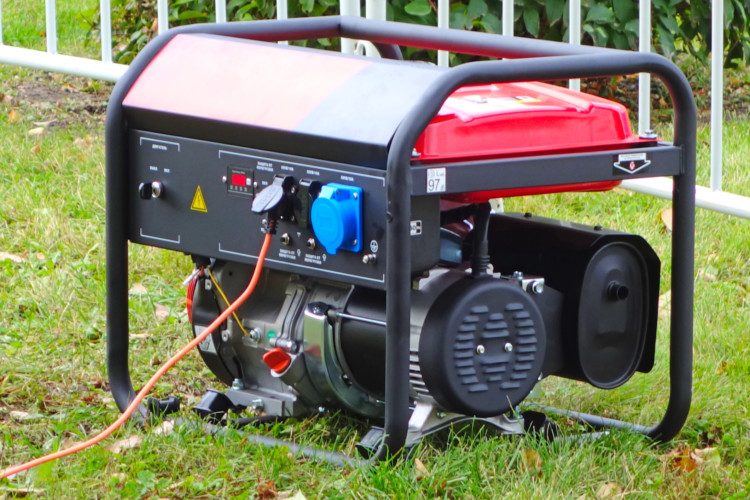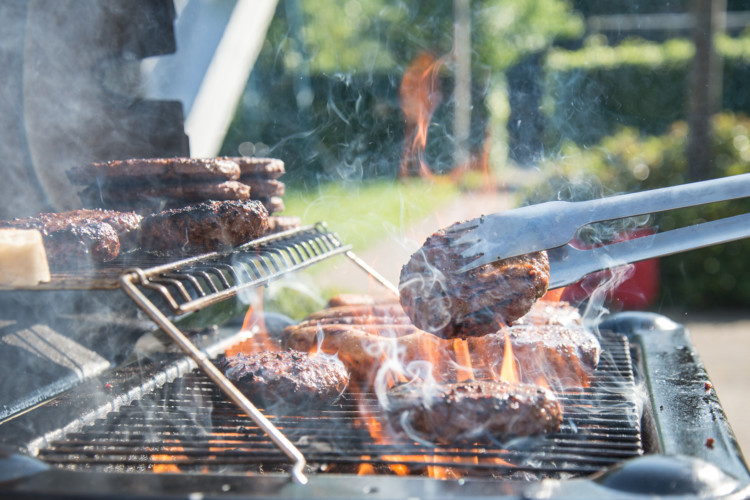Seller Profile: usamedia
$900
DJI Mavic 2 Pro – With Extras
DJI Mavic 2 Pro drone with four batteries, controller, charger, ND filters, and waterproof hard case. Also extra blades, etc (not pictured). This is […]
Generator Buyer’s Guide + How to Use a Generator (Safely!)

Here’s what you need to know about operating a generator safely.
Generators can be your salvation during a power outage or in locations without electricity but figuring out which generator its best for you can be an intimidating process. Here’s our buying guide on how get a generator that suits your needs and some important tips for safe operation.
Determine Your Power Priorities
Generator sizes are measured in watts. It’s helpful to start by making a list of all the things you want to keep running during an outage. Often this list will include:
- Refrigerator
- Window AC Unit
- Lights
- Portable Heater
- Personal Electronics
Typically, a 5000-watt generator is recommended to cover the basics. Manufacturers often have wattage estimate guides online to help you determine precisely your energy needs. Honda has a great one here: https://powerequipment.honda.com/generators/generator-wattage-estimation-guide
Determine Which Kind of Generator You Need
There are three main kinds of generators. Portable generators are a great value for your money. They run on gasoline and typically range in power from 3000 to 8000 watts.
Inverter generators are a bit more complex than portable generators and so are typically more expensive for similar amounts of power. They match their power output to the amount of power being used by your devices rather than running at full blast all the time. This allows them to use fuel more efficiently and run at lower volumes.
Home standby generators are permanently installed, can run on natural gas or propane, and turn on automatically when your power goes out. They also typically supply larger amounts of power than portable or inverter generators. These will generally require an electrician’s knowledge and skill to install.
You can also look into a portable power station. These devices use neither gas or propane to power your house. Instead, they use a battery that is charged by plugging it into an electrical outlet or in some cases hooking it up to a solar panel.
5 Tips for Safely Operating Your Generator
- Always Run Your Generator Outdoors
Your generator needs a dry place out of the rain and snow. The best place is outside, under a canopy for protection. Indoors is not a good place for a generator since it produces harmful carbon monoxide and can be noisy. A distance of 15 feet is the minimum recommended distance to prevent harmful fumes from coming inside.
- Don’t Connect the Generator to a Power Outlet in the House
Always follow the safety instructions in the manual and do not connect the generator to a power outlet in your house. This causes what is called ‘back feeding’ and can result in someone getting electrocuted. An electrician can give you advice on powering your whole house and can install a “transfer switch” for you. This allows your home wiring to accept power from the generator.
- Make Sure to Use the Right Cord
Often people will invest $100’s if not $1000’s a quality generator only to skimp out on the cord used to run electricity. It is crucial that you use a heavy-duty extension cord designed for outdoor use when powering your devices.
- Never Fuel Your Generator While it’s Hot
Remember to “only fuel when it’s cool”. A small fuel spill on a hot generator can cause a fire. Generators cool down relatively fast once you shut them off so make sure to wait a few minutes before fueling. It’s also important that you store reserve fuel away from the generator in case of an accident.
- Don’t Use Bad Fuel
Some of the most common issues associated with small engine equipment stem from using faulty fuel. Keep reserve fuel stored safely and check the manufacturer’s recommendation for using a fuel stabilizer.
Ongoing care is needed for your generator so always keep it on level ground and away from dust, moisture and dirt. Run the generator at least once a month and have it serviced regularly (oil change, spark plugs, filter, etc.)
Looking for a good used generator? Find used generators for sale in Ocala on Ocala4sale.com
How to Choose the Right BBQ Grill for Labor Day

Nothing compares to cooking on an open flame. Whether you’re roasting mouth-watering vegetables or grilling juicy steak kabobs, the barbecue is perfect for sealing in the natural flavor. If you are looking to join the millions who already enjoy the barbecue life, or want to replace or upgrade their equipment, a little homework may be in order before being met with the dozens of choices available. The Hearth, Patio & Barbecue Association (HPBA) offers a factsheet for grill buying to help narrow down the seemingly endless possibilities. Charcoal or Gas? Stainless Steel or Cast Aluminum? $150 or $500?
What’s Your BBQ Budget?
Setting a budget is a realistic place to begin, as some barbecue grills can cost $1,000+. A good way to establish a budget is to decide where you will be using your grill (backyard, patio, apartment balcony) and consider your space restrictions. This will help narrow down some of the choices and perhaps set a price range for you in the process.
The Big BBQ Question: Charcoal, Gas or Electric?
Before your shopping process begins, the looming question of Charcoal, Gas or Other must be answered. Charcoal grilling aficionados swear by the smoke flavor, despite the mess of dealing with the charcoal and required cleaning of these grills. Charcoal does require ample heating time before it can be used. Gas grills offer convenience in that with a push of a button the gas ignites and, with limited pre-heating, the grill is ready to use. For some, the other category includes electric grills. These grills are an eco-friendly, easy to use and often the best choice for apartment-dwellers. For more on cooking with gas and charcoal, check out this article on www.allrecipes.com.
Grilling Safety Tips
After choosing the perfect grill, check back in with HPBA and make sure anyone who plans to use the grill is familiar with how to do so safely. Only use barbecue grills outdoors in well-ventilated areas. Use long-handled utensils and be cautious of clothing with strings (aprons) or shirt tails. Be prepared to handle the fire and flare-ups with a water bottle, baking soda, fire extinguisher or garden hose. And always use common sense when grilling.
Fun Fact: Nearly 74 million U.S. households have barbecue grills with 45% of grill owners using their grill at least 1-2 times per week in the summer months.

